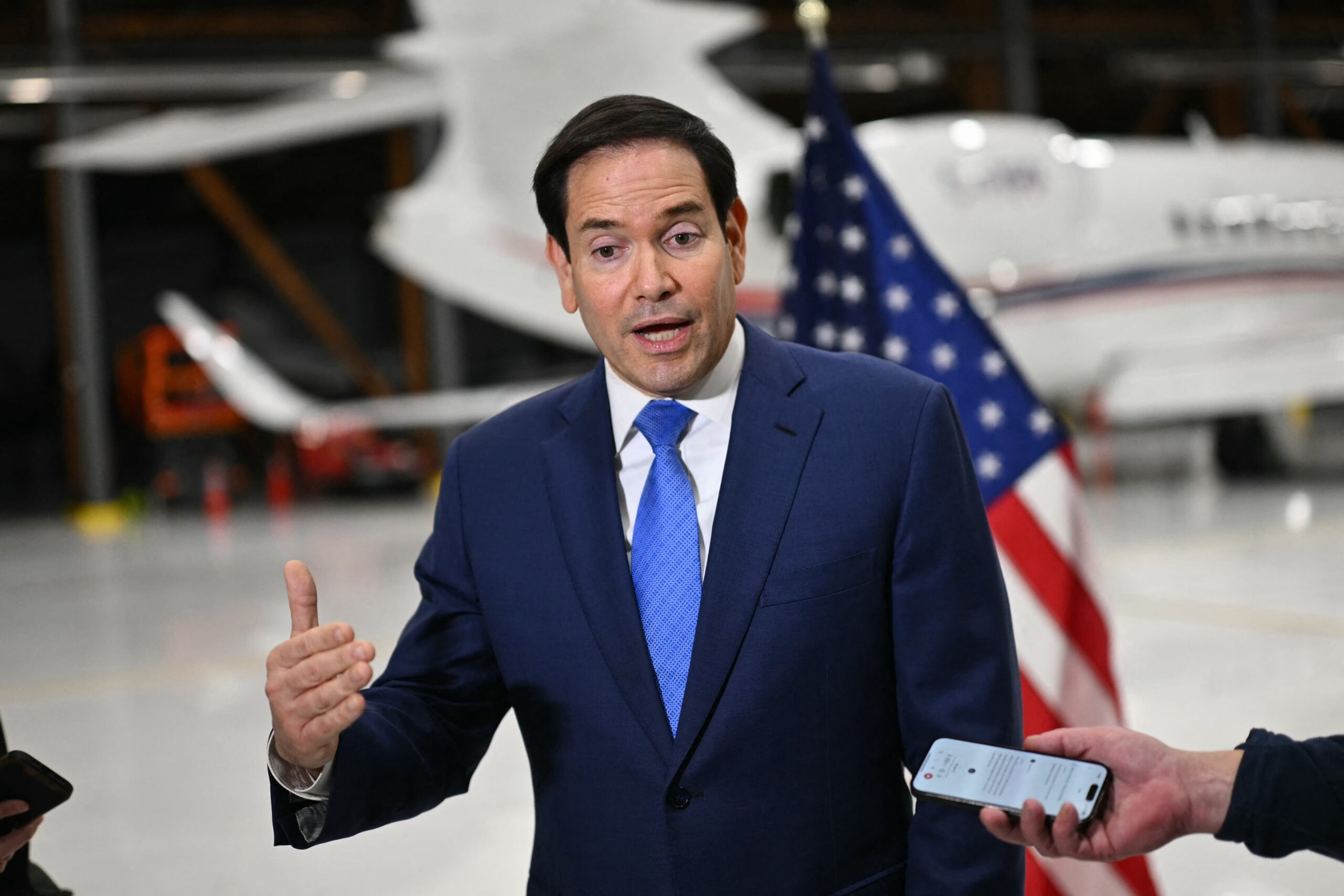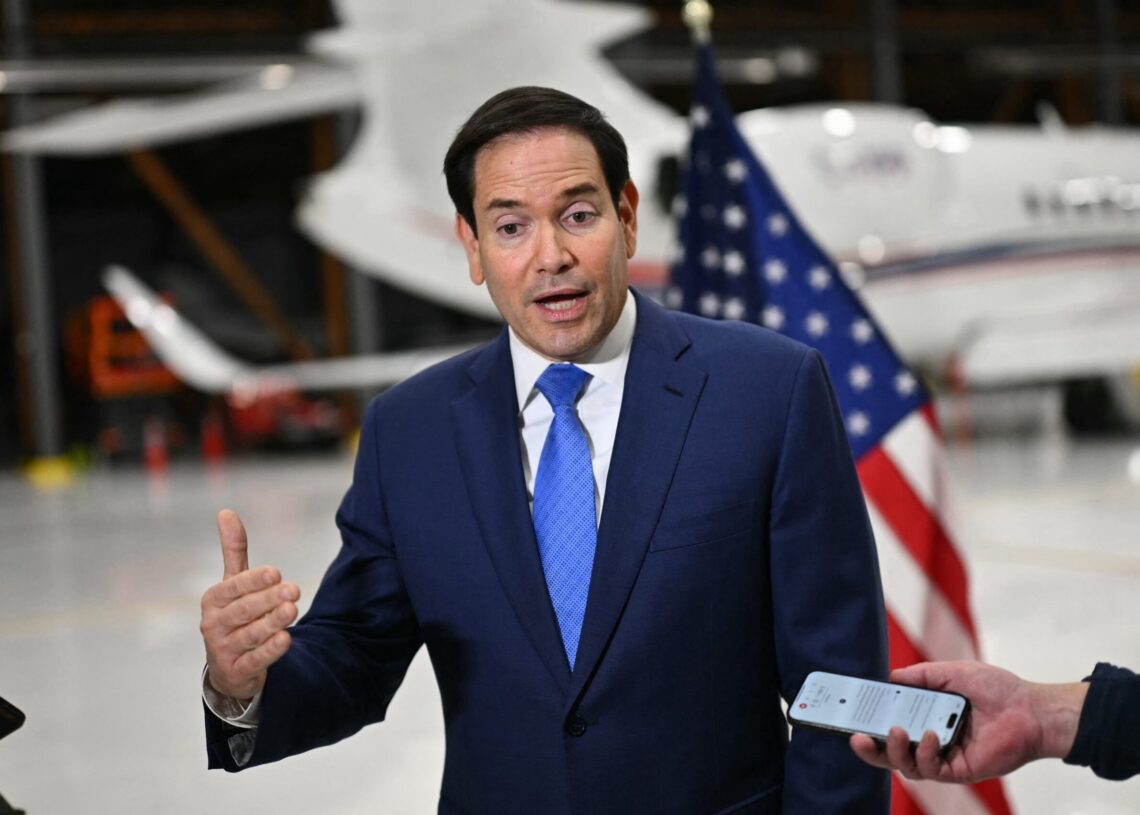
The Trump administration directed visa officers to consider obesity — and other chronic health conditions such as heart disease, cancer and diabetes — as reasons to deny foreigners visas to the United States.
Secretary of State Marco Rubio told U.S. consulates and embassies around the world about the changes in a Nov. 6 cable, according to a copy obtained and verified by The Washington Post. The move broadens current medical screening beyond contagious diseases and gives visa officers new justification to reject applicants, in the Trump administration’s latest effort to curb the flow of immigration.
The Trump administration directed visa officers to consider obesity — and other chronic health conditions such as heart disease, cancer and diabetes — as reasons to deny foreigners visas to the United States.
Secretary of State Marco Rubio told U.S. consulates and embassies around the world about the changes in a Nov. 6 cable, according to a copy obtained and verified by The Washington Post. The move broadens current medical screening beyond contagious diseases and gives visa officers new justification to reject applicants, in the Trump administration’s latest effort to curb the flow of immigration.
“You must consider an applicant’s health,” the State Department cable said. “Certain medical conditions — including, but not limited to, cardiovascular diseases, respiratory diseases, cancers, diabetes, metabolic diseases, neurological diseases, and mental health conditions — can require hundreds of thousands of dollars’ worth of care.”
The cable then suggests that consulates consider obesity in determining whether to grant visas, mentioning that it can cause sleep apnea, high blood pressure and clinical depression.
The cable was drafted by the agency’s political leadership and did not go through normal channels for review — which typically includes input from career staff, according to a senior State Department official who spoke on the condition of anonymity because they were not authorized to talk to the media.
“This guidance gives consular officers wide discretion to deny both immigrant and nonimmigrant visas based on common health conditions that, by themselves, have never been treated as disqualifying,” said Vic Goel, an immigration attorney in Reston, Virginia.
Anna Kelly, a White House spokeswoman, said in a statement that “for 100 years, State Department policy has included an authority to deny visa applicants who would pose a financial burden to taxpayers, such as individuals who were seeking publicly-funded health care in the U.S. and could further drain health care resources from American citizens.
“President Trump’s Administration is finally fully enforcing this policy, and putting Americans first.” She added that “low-level bureaucrats may have run autopen Joe Biden’s administration, but under President Trump, directives come from the top — not whiny deep staters who complain to The Washington Post.”
About 16 percent of adults worldwide qualified as obese in 2022, according to the World Health Organization. And 14 percent had diabetes in 2022.
The State Department’s guidance also directs visa officers to consider applicants ineligible to enter the U.S. for several new reasons, including whether they are past retirement age, how many dependents — children or elderly parents — they have, and whether any dependents have “special needs” or disabilities, the cable said.
Rubio issued the directive under the “public charge” rule, which denies visas and green cards to immigrants expected to be heavy users of social welfare programs or be institutionalized. Critics of the new directive point out that the Trump administration is relying on the idea that having a medical condition creates a financial burden on the U.S.
“While health has always been one of several statutory factors consular officers may consider in a public charge determination, prior practice was narrow and tied to specific findings, for example, conditions that would likely result in institutionalization at government expense,” said Goel, the immigration attorney. “Here, the cable directs officers to consider a broad list of chronic and common medical conditions explicitly tying them to the potential cost of care over an applicant’s expected lifespan.”
The State Department directive applies to both temporary visa holders, such as H-1B visa holders, as well as immigrants seeking permanent residence in the U.S. for work and family-related reasons.
Certain humanitarian visa applicants, such as refugees, are excluded, although the Trump administration has ended or is ending many of those programs.
The new directive is the latest example of the Trump administration’s tougher stance on legal immigration, including travel bans and the cancellation of certain humanitarian immigration programs.
Steven Heller, an immigration attorney in the United Kingdom who has worked as a U.S. immigration officer, said U.S. consular officers typically have significant discretion to deny visas based on their interpretation of the rules. He noted that the directive gives visa officers “more reasons not to have to issue a visa.”
The State Department directive appears to go beyond the Centers for Disease Control and Prevention’s technical guidance on medical criteria for immigrants to the U.S., which include a tuberculosis and syphilis test and disclosure of drug abuse or addiction as well as vaccination records.
The guidance also asks visa officers to make their own assessments of how much someone’s medical conditions might cost the U.S.
“Does the applicant have adequate financial resources to cover the costs of such care over his entire expected lifespan without seeking public cash assistance or long-term institutionalization at government expense?” the cable says.
A diplomat who received last week’s cable, and also spoke on the condition of anonymity because they were not authorized to talk to the media, said State Department leadership has been very active in finding new ways to deny foreigners entry into the U.S. or just slow down the system.
John Hudson contributed to this report.
The post U.S. visas can be denied for obesity, cancer and diabetes, Rubio says
appeared first on Washington Post.




